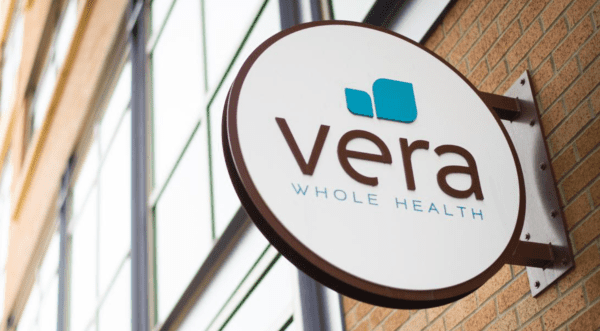|
Vera Acquires Castlight | Mobile Technology
January 9, 2022
|
|
|

|
|
Together with
|

|
|
|
“Healthcare was already complicated and opaque. What has been stunning is that the complexity has increased as opposed to decreased over the last twelve months.”
|
|
Castlight Health CEO Maeve O’Meara
|
|

|
|
Healthcare’s long march towards value-based care recently took another step forward with the announcement that Vera Whole Health is acquiring care navigation company Castlight Health for approximately $370M.
Vera will acquire all outstanding shares of Castlight for $2.05 per share (a 25% premium), which will be welcome news for recent investors but do little to ease the losses of those that picked up shares for nearly $40 following Castlight’s 2014 IPO.
- Castlight’s digital platform combines health benefits and care navigation to help employers and health plans make better decisions surrounding plan design, while also enabling members to easily connect with “the right care at the right time.”
- Vera’s model centers around whole-person care through its network of primary care providers and clinics. The company operates entirely at risk, allowing it to retain any savings from care management after a flat per-member, per-month rate for customers.
- The combined company aims to scale value-based care in the employer market by integrating Castlight’s navigation platform with Vera’s clinical network, while also allowing employers to participate in full risk-sharing for their commercial populations.
The Takeaway
Merging value-based primary care with navigation has been a go-to strategy for providers looking to offer more personalized care while simultaneously controlling expenses. We saw a similar move with the merger of Doctor on Demand and Grand Rounds early last year, and Vera’s acquisition of Castlight could be a sign of more consolidation to come in 2022.
|




|
|

|
|
Mobile technology such as smartphones and tablets might not be living up to expectations when applied in the hospital setting, at least according to a new study published in JMIR Human Factors.
The purpose of the study was to identify difficult tasks and contextual factors that introduce inefficiencies to the hospital workflow, with the goal of informing better integration of mobile technology.
- Methods – The researchers recruited 12 hospitalists at a 200-bed VA hospital in Indiana to undergo interviews guided by the Systems Engineering Initiative for Patient Safety framework, which analyzes five factors (people, environment, tasks, tools, and organization) to describe how providers’ work systems impact outcomes.
- Results – The hospitalists identified chart reviews, orders, and documentation as the most redundant or difficult tasks, with most of the issues associated with a lack of access to EHRs at the bedside. Participants noted that many apps are designed to be broadly useful, causing them to lack task-specific features that would improve usability.
When asked about ideas for mobile technology, participants prioritized reduction in task time and task completion at bedside, leading to three representative examples of needed tech:
- Apps that improve patient-provider communication and entering orders at bedside
- Note-taking apps with sharing features and nurse contact information
- Apps for electronic consent
The Takeaway
Although this was only a small study, the theme that emerged in the interview responses was clear: designing for the many overlooks the needs of the few. All participants reported that mobile apps with missing features are quickly abandoned in favor of “their memory” or “pen and paper,” while the most useful apps address a specific problem with a purpose-built solution.
|




|
|
Explore Nuance’s Personalized Patient Experience
Personalized digital experiences drive better outcomes for patients and providers. Explore how Nuance is using AI automation to advance the quality of service across the care journey here.
|
|
- Centene Acquires Magellan: Centene has completed its $2.2B acquisition of managed care provider Magellan Health, which will help the payor push further into the behavioral health arena. The acquisition enables Centene to provide whole-health solutions to complex populations facing mental health issues, which have historically consumed a disproportionately large share of healthcare expenses.
- Smart Hospital Growth: A report from Juniper Research predicts that the smart hospital market, which includes hospitals that leverage data analytics and the Internet of Things (IoT) to support care delivery, will grow to $59B by 2026, up from $29B in 2021. IoT medical devices are expected to be a primary growth driver, with Juniper anticipating 7.4M IoT devices deployed globally in 2026 (vs 3.2M in 2021), providing a large lift to companies that both manufacture the devices and make sense of the data that they produce.
- Chronic Condition Interventions: A study out of British Columbia randomized 229 participants with multiple chronic conditions into an intervention group (n=116, care as usual plus internet-based self-management program) and a control group (n=113, care as usual), finding that the intervention group had 56 hospitalizations during the two-year study, compared with 81 in the control. Although this was not a statistically significant difference after adjusting for age and number of conditions, the findings suggest that self-management interventions have the potential to augment primary care for multi-chronic patients.
- Nomi + Artemis: Less than one month after raising $110M in Series A funding, direct care provider Nomi announced that it is acquiring Artemis Health, a company that helps health plans and large employers analyze their benefits. Nomi stated that the acquisition will immediately benefit its Nomi Connect platform, which allows organizations to obtain healthcare services directly from providers.
- Little Otter Series A: Pediatric mental health company Little Otter recently closed a $22M Series A round ($26M total funding) to help address behavioral issues in children through its technology platform geared towards the whole family. Otter’s unique approach to pediatric mental healthcare guides families through an intake questionnaire before pairing them with a dedicated care lead to help create a personalized care plan with measurable milestones.
- 2021 Digital Health Funding: One of the first full-year digital health funding reports was recently released by Silicon Valley Bank, which listed total US digital health VC funding at $25.6B for 2021, nearly double 2020’s total. Despite the strong momentum, SVB predicts that digital health funding will drop to around $16B through 2022 as the poor performance of recent IPOs creates tension with soaring private valuations and causes a closer focus on profitability.
- Papa Partnership: Medicare Advantage payor Zing Health is partnering with senior care company Papa to begin offering its services to members. The partnership follows Papa’s $150M Series D round in November, funding that is being used to build out the company’s “Papa Pals” network to provide seniors with companionship or assistance with daily tasks like transportation and housework.
- EHRs Endanger Well-Being: Poor EHR implementations have been found to induce stress and cognitive workload in nurses, according to a recent study published in JMIR. A 2020 survey of 3,610 Finnish nurses found that stress levels were significantly higher for those that had implemented an EHR within the last 6 months (4.07 on a 5 point scale) compared to those that had no implementations within the last year (3.26). The researchers recommend more training during implementations and wider transition periods to protect nurses’ well-being.
- Stryker Merges With Vocera: Stryker has agreed to a merger with Vocera Communications that will have the medical equipment maker acquire all outstanding Vocera shares for a total of approximately $3B. Vocera develops communication and workflow platforms for the healthcare industry, technologies that Stryker hopes will help caregivers better manage the growing number of connected medical devices while improving patient safety.
- Amazon Eyes M*Modal: Amazon is reportedly in talks to acquire dictation vendor M*Modal from 3M, which would bring Amazon far deeper into healthcare, and could serve a core role in the commerce/cloud giant’s future healthcare strategy. Although not official, this rumored acquisition makes sense given Amazon’s healthcare ambitions, AWS and 3M HIS’ existing relationship, and the fact that Microsoft acquired Nuance for the same reasons.
|
|
|
|
|